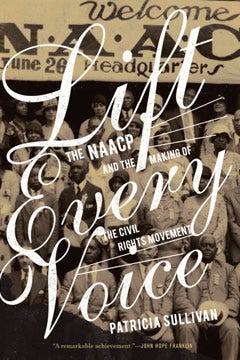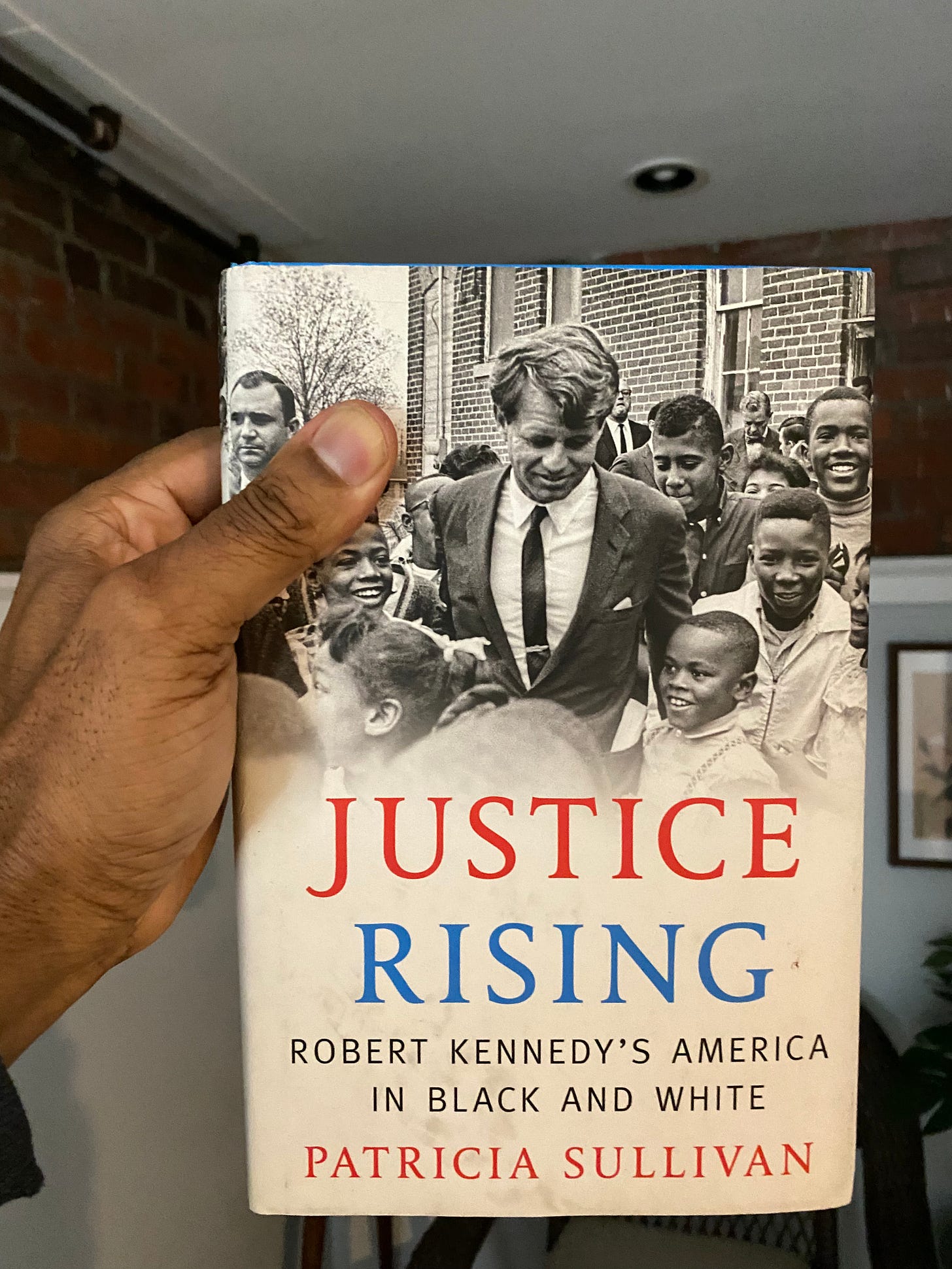Patricia Sullivan Is One of My Favorite Black Historians
And She’s White: Does That Even Matter?
Patricia Sullivan, a professor of history at the University of South Carolina, has made significant contributions to the field of Black History through her scholarly works. In my view her research and writing offer compelling perspectives, all shaped by a unique blend of academic rigor and a deep commitment to uncovering and presenting the multifaceted experiences of Black Americans.
Sullivan's books have been instrumental in providing nuanced insights into the Civil Rights Movement and the broader Black experience. Her meticulous scholarship delves into the complexities of racial dynamics, social struggles, and the unyielding pursuit of justice and equality. This allows readers from various backgrounds to gain a deeper understanding of the Black experience in America.
The role of white academic scholars like Sullivan in writing about Black History is a point of both significance and debate. On one hand, their contributions can be seen as valuable in bringing diverse perspectives to the study of Black History.
Scholars like Sullivan, through their extensive research, can help bridge gaps in understanding and foster a more inclusive historical narrative. They can use their platform to highlight stories and perspectives that might otherwise remain underrepresented or misunderstood in mainstream historical discourse.
On the other hand, the involvement of white scholars in Black History has raised questions about representation and authenticity. Some critics have argued that Black History should be written and interpreted primarily by Black scholars, who may have a more innate understanding of the nuances and lived experiences of being Black in America. They contend that while white scholars can study and appreciate Black History, their work may inherently lack the depth of perspective that comes from personal experience.
Despite these debates, I believe that the contribution of scholars like Patricia Sullivan remains important. Her work exemplifies how historians, regardless of their background, can contribute meaningfully to the understanding of Black History. By approaching her research with sensitivity, thoroughness, and a commitment to truth, Sullivan's work helps to illuminate the rich tapestry of Black History, presenting it in a manner that is both educational and respectful.
Patricia Sullivan has made notable contributions to the field of Black History through her published works. Here's an overview of some of her significant books:
Days of Hope: Race and Democracy in the New Deal Era: This book which is on my voluminous list of books to read explores the impact of the New Deal on Black Americans and the evolving struggle for civil rights during this period. Sullivan examines how New Deal policies affected Black citizens and how leaders in the Black community engaged with the Roosevelt administration to advocate for civil rights.
Lift Every Voice: The NAACP and the Making of the Civil Rights Movement: loved, loved, loved reading this book, one of Sullivan's most acclaimed works. It traces the history of the National Association for the Advancement of Colored People (NAACP) and its pivotal role in the civil rights movement. The book provides an in-depth look at the organization's strategies, challenges, and successes from its inception through the landmark civil rights victories of the 1960s.
Freedom Writer: Virginia Foster Durr, Letters from the Civil Rights Years: Sullivan edited this collection of letters from Virginia Foster Durr, a white civil rights activist. The book offers a personal perspective on the civil rights era, illustrating the interconnectedness of race, politics, and society in America during this tumultuous period.
Currently reading her latest book "Justice Rising: Robert Kennedy's America in Black and White.” In this landmark work, Sullivan places Robert Kennedy at the heart of the 1960s racial justice movement, offering a fresh perspective on his role and impact. The book is a compelling narrative that intertwines history, race, and politics, shedding light on how these forces converged during the 1960s to fundamentally reshape American society.
Sullivan's deep research, drawing on government files, personal papers, and oral interviews, paints an intimate portrait of Kennedy as a transformational leader. Initially viewing the civil rights movement as a political challenge, she highlights how Kennedy's journey evolves into a moral quest for justice. This evolution is set against the backdrop of escalating protests across the South and stiff opposition from Southern Democrats committed to segregation.
The book vividly illustrates Kennedy's pivotal role in advancing civil rights. It explores how he leveraged the power of the federal government to support school desegregation and voter registration, contributing significantly to the passage of the 1964 Civil Rights Act.
Sullivan highlights Kennedy understood that legislation alone couldn't eradicate racism. His insights into the root causes of urban unrest, like poverty, inadequate education, and limited job opportunities, were prescient and remain relevant today.
Sullivan also explores Kennedy's opposition to the Vietnam War and his deep commitment to addressing internal American struggles, particularly the fight for equality and freedom for African Americans. Kennedy's vision and approach to civil rights were both pragmatic and idealistic, embodying a rare blend of political acumen and moral leadership.
In my opinion, "Justice Rising" is more than a historical account; it's a reflection on enduring questions about America's identity and aspirations. Kennedy's poignant query on the night of Martin Luther King Jr.'s assassination encapsulates the hopes and turmoil of the era: "What kind of nation are we, and what direction do we want to move in?" This question, as Sullivan highlights, remains as urgent and unanswered today as it was then, making "Justice Rising" a crucial read for understanding our past and navigating our future.








Really glad for your recommendation of Patricia Sullivan’s work, Diamond-Michael, particularly as we recently relocated to South Carolina (although I still spend a lot of time in Asheville, NC). I confess to some hesitation about Black History books written by white authors, so your thoughts here are reassuring. I plan to get my SC drivers license next week and a library card soon after! I hope some of her work will be on the shelves.
"And She’s White: Does That Even Matter?" No, it doesn't. What matters is if she is accurate and insightful.